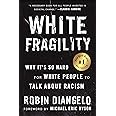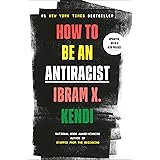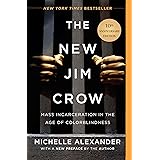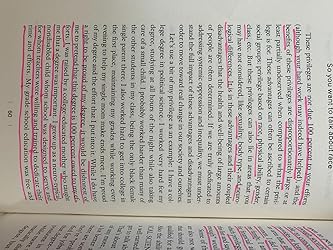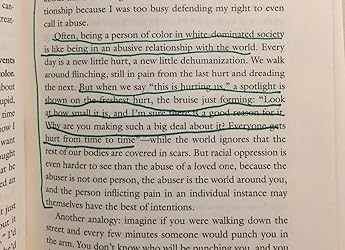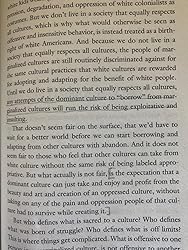
Enjoy fast, free delivery, exclusive deals, and award-winning movies & TV shows with Prime
Try Prime
and start saving today with fast, free delivery
Amazon Prime includes:
Fast, FREE Delivery is available to Prime members. To join, select "Try Amazon Prime and start saving today with Fast, FREE Delivery" below the Add to Cart button.
Amazon Prime members enjoy:- Cardmembers earn 5% Back at Amazon.com with a Prime Credit Card.
- Unlimited Free Two-Day Delivery
- Streaming of thousands of movies and TV shows with limited ads on Prime Video.
- A Kindle book to borrow for free each month - with no due dates
- Listen to over 2 million songs and hundreds of playlists
- Unlimited photo storage with anywhere access
Important: Your credit card will NOT be charged when you start your free trial or if you cancel during the trial period. If you're happy with Amazon Prime, do nothing. At the end of the free trial, your membership will automatically upgrade to a monthly membership.
Buy new:
-45% $15.98$15.98
Ships from: Amazon Sold by: MyrinA
Save with Used - Very Good
$7.85$7.85
Ships from: Amazon Sold by: Jenson Books Inc

Download the free Kindle app and start reading Kindle books instantly on your smartphone, tablet, or computer - no Kindle device required.
Read instantly on your browser with Kindle for Web.
Using your mobile phone camera - scan the code below and download the Kindle app.

OK
Image Unavailable
Color:
-

-
-
- To view this video download Flash Player
-

-
 VIDEO
VIDEO -

 Audible sample Sample
Audible sample Sample 


So You Want to Talk About Race Hardcover – January 16, 2018
Purchase options and add-ons
Protests against racial injustice and white supremacy have galvanized millions around the world. The stakes for transformative conversations about race could not be higher. Still, the task ahead seems daunting, and it’s hard to know where to start. How do you tell your boss her jokes are racist? Why did your sister-in-law hang up on you when you had questions about police reform? How do you explain white privilege to your white, privileged friend?
In So You Want to Talk About Race, Ijeoma Oluo guides readers of all races through subjects ranging from police brutality and cultural appropriation to the model minority myth in an attempt to make the seemingly impossible possible: honest conversations about race, and about how racism infects every aspect of American life.
"Simply put: Ijeoma Oluo is a necessary voice and intellectual for these times, and any time, truth be told." ―Phoebe Robinson, New York Times bestselling author of You Can't Touch My Hair
- Print length256 pages
- LanguageEnglish
- PublisherSeal Press
- Publication dateJanuary 16, 2018
- Dimensions6.5 x 1 x 9.25 inches
- ISBN-101580056776
- ISBN-13978-1580056779
The Amazon Book Review
Book recommendations, author interviews, editors' picks, and more. Read it now.
Frequently bought together

Similar items that may deliver to you quickly
 Tying racism to its systemic causes and effects will help others see the important difference between systemic racism, and anti-white bigotry.Highlighted by 8,635 Kindle readers
Tying racism to its systemic causes and effects will help others see the important difference between systemic racism, and anti-white bigotry.Highlighted by 8,635 Kindle readers Systemic racism is a machine that runs whether we pull the levers or not, and by just letting it be, we are responsible for what it produces. We have to actually dismantle the machine if we want to make change.Highlighted by 8,526 Kindle readers
Systemic racism is a machine that runs whether we pull the levers or not, and by just letting it be, we are responsible for what it produces. We have to actually dismantle the machine if we want to make change.Highlighted by 8,526 Kindle readers Privilege, in the social justice context, is an advantage or a set of advantages that you have that others do not.Highlighted by 8,067 Kindle readers
Privilege, in the social justice context, is an advantage or a set of advantages that you have that others do not.Highlighted by 8,067 Kindle readers Racism in America exists to exclude people of color from opportunity and progress so that there is more profit for others deemed superior.Highlighted by 8,051 Kindle readers
Racism in America exists to exclude people of color from opportunity and progress so that there is more profit for others deemed superior.Highlighted by 8,051 Kindle readers Often, being a person of color in white-dominated society is like being in an abusive relationship with the world.Highlighted by 6,313 Kindle readers
Often, being a person of color in white-dominated society is like being in an abusive relationship with the world.Highlighted by 6,313 Kindle readers
From the Publisher
|
|
|
|
|
|---|---|---|---|
|
|
|
|
|
Editorial Reviews
Review
―Phoebe Robinson, New York Times-bestselling author of You Can't Touch My Hair
"Oluo is out to help put words to action, which at this day and age, might be exactly what we need."―Forbes
"Impassioned and unflinching"
―Vogue.com
"Fascinating, real, and necessary."―The Root
"Read it, then recommend it to everyone you know."―Harper's Bazaar (Named a Top 10 Book of the Year)
"I don't think I've ever seen a writer have such an instant, visceral, electric impact on readers. Ijeoma Oluo's intellectual clarity and moral sure-footedness make her the kind of unstoppable force that obliterates the very concept of immovable objects."―Lindy West, New York Times-bestselling author of Shrill
"A guidebook for those who want to confront racism and white supremacy in their everyday lives, but are unsure where to start."―Bitch
"Oluo offers us a reset, a starting point, a clear way forward."―dream hampton, writer, activist, filmmaker, and executive producer of Surviving R. Kelly
About the Author
Product details
- Publisher : Seal Press; First Edition (January 16, 2018)
- Language : English
- Hardcover : 256 pages
- ISBN-10 : 1580056776
- ISBN-13 : 978-1580056779
- Item Weight : 15.2 ounces
- Dimensions : 6.5 x 1 x 9.25 inches
- Best Sellers Rank: #377,659 in Books (See Top 100 in Books)
- #453 in Civil Rights & Liberties (Books)
- #1,198 in Discrimination & Racism
- #1,395 in African American Demographic Studies (Books)
- Customer Reviews:
Videos
Videos for this product

0:41
Click to play video

So You Want to Talk About Race
Amazon Videos
About the author

Discover more of the author’s books, see similar authors, read author blogs and more
Customer reviews
Customer Reviews, including Product Star Ratings help customers to learn more about the product and decide whether it is the right product for them.
To calculate the overall star rating and percentage breakdown by star, we don’t use a simple average. Instead, our system considers things like how recent a review is and if the reviewer bought the item on Amazon. It also analyzed reviews to verify trustworthiness.
Learn more how customers reviews work on AmazonReviews with images
-
Top reviews
Top reviews from the United States
There was a problem filtering reviews right now. Please try again later.
I am a white, sexagenarian, male, and former CEO. I am, therefore, a r#cist. (And yes, I am being sensitive to the censors who will look at this before posting it.) And I accept that because this isn’t about me. My personal tolerance is irrelevant. If a picture says a thousand words, an action is worth ten thousand pictures. That is how we should judge each other.
From my very privileged position in America, I have had a bird’s eye view of the systemic, institutional privilege (which in the negative is discrimination) that currently defines virtually all Western institutions today, including virtually all corporations.
Women have not shattered the corporate glass ceiling because the corporate institution was designed and built by men. Blacks have not achieved equity in the economic arena because it was designed by white men. Which is why, as Ijeoma points out, it really doesn’t matter if the man in charge is a racist or a misogynist or not.
The #MeToo and Black Lives Matter movements are all about gender and racial discrimination. What has enabled misogyny and racism, however, is the definition and allocation of power in our institutions and our society. Tolerance is great, but it’s nowhere near enough. Until we challenge the structure of power, we will not address the underlying cause of social and economic injustice.
Here are the main takeaways I got from this book:
- It’s not about me or Ijeoma. This is about structural injustice.
- It’s not about the tone of the discussion. This is about structural injustice.
- It’s not about intent. This is about structural injustice.
- It’s not about who is right and who is wrong. This is about structural injustice.
- It’s not about who can use what words. This is about structural injustice.
In the end, the great strength and the great weakness of our political economy is our over-riding emphasis on the individual and his or her opportunities and rights. There’s nothing wrong with that per se. But in this crowded, technologically enabled world we live in, it’s not enough. We can live individually but we can only be judged collectively. Our insistence that every conversation be about me, or you, or Ijeoma, or that person over there, is blinding us to the degree that we really are all in this together.
Scientists used to view the environment as a collection of independent and discrete parts. There was a prairie here, an Arctic ice field there, and a rain forest someplace a long way away. They now realize, however, that there is only one ecosystem and what happens in the rain forest is just as important as what happens in the Iowa corn field.
Other scientists have discovered the same thing about the other hard and soft sciences. Biology and economics don’t cut it any more. We have to think in terms of evolutionary biology and behavioral economy. Real understanding lies not just within a functional discipline, but also in the spaces that separates them and the overlaps that interconnect them.
So, I go back to my original question. Why did Ijeoma write this book? I won’t pretend to know the answer but it is clear that she has a genuine desire to see us face the issue. And after reading this book it is clear that the desire is genuine. And while it is theoretically true that if she is successful she will have to find something new to write about, so what? That is exactly the kind of binary, digital thinking that is at the heart of the problem. Life is not either/or. It is, with tolerance, and/but.
Ijeoma has a perspective. And the tone is sometimes a bit harsh. But how could it not be? In the end I think the most amazing and laudable thing about her language is that she obviously worked so hard to keep a lid on her passion. If she were white, we would elect her to high office.
Am I appropriating Ijeoma’s book by writing this review? Yes. But that’s irrelevant. I am not her. And my appropriation is going to paint racism with a white brush and, potentially, demean that pain. But that is the thinking of a binary thinker—either/or. And that, in the end, is what we have to overcome. Tolerant people are not binary thinkers. Tolerance is not a function of embracing the other side of the binary issue. It is about eliminating the binary divide. Ultimately, the racism talked about here is about institutional models of power that disadvantage one group over another. (And, as Ijeoma points out, there are many.)
In the end, I won’t say this was the most pleasant read. It was, however, a good read. It made me think. And for that I am grateful to the author. I won’t say, “well done,” because that would be an appropriation, as if I could evaluate how well she had represented her pain. I can’t. It’s hers, not mine. I will say, however, that “I listened.” And I listened because you were clear and authentic. And I do thank you for that.
A must read. Period.
Do I think this book will take a raging racist and make them not racist? Of course not because I don't really think that's possible at all. But do I think that this could take somebody who is ignorant and flies off at the mouth and teach them how ignorant and bigoted their speech can be? Absolutely.
I really appreciate how the author does not let anyone feel sorry for themselves either. She reiterates over and over and over again that regardless of how you feel about things, what really matters is the opinion of the person of color who is being discriminated against. I hear all too often that a white person doesn't 'think they're being racist' and even I, as a white woman can see that that is just not how it works. We need to take the feelings and the learned experiences of our fellow humans seriously and stop minimizing everything because we've embarrassed ourselves.
My book club is reading this author's newest book Be A Revolution so I wanted to go back and revisit this one. I listened to it on audiobook this time around and I really enjoyed it that way as well. The author is not the reader but the reader does a very good job making this book feel more like a conversation than a lecture.
SO YOU WANT TO TALK ABOUT RACE was so many things for a mixed person like me, who benefits from an overwhelming amount of privilege. Going into it already with an appreciation for Ms. Oluo's writing, I expected to be challenged, to maybe even be a little defensive, to want to put down the highlighter and pen occasionally so I could pick up the band-aids for my emotional ouchies. Which I did.
What I DIDN'T expect was to see myself in the pages from another side. But something so wonderful about both Ijeoma's writing in general, and SO YOU WANT TO TALK ABOUT RACE specifically, is its accessibility; so often as a mixed person with one white parent and a parent who is both Filipino and Italian I've felt like when it comes to race there's just nowhere where I belong. I look white to most people and know I have white privilege so for most of my life that was how I identified. Indeed, during the majority of my time reading Ms. Oluo's book I was either learning (for example, while I "knew" that many police organizations had historical ties to racist origins, I did not know the extent, or the depth of where they grew from.
I also spent much of the book feeling horrified and/or angry at the way Ijeoma was treated by friends, colleagues, even her family. These feelings of horror at acts of blatant racism or mere ignorance come from a place of privilege, I know. Despite the fact I nodded along to many sections (I ALSO HAVE A DEGREE IN POLITICAL SCIENCE!!) including the chapters about the white washing and sexism in the tech industry, where I work. I knew that I couldn't understand what it was like to be affected by these kinds of marginalizations.
That is until I got to the chapter about the model minority myth - which I was intimately familiar with, my grandfather having served white Americans his entire life - and I almost cried. The stories he told me about what he had to do to leave the Philippines and become a citizen, the way the Navy, who he's so proud to have served in, treated him, all came to my mind. Race is complicated, as this book makes clear.
Ultimately though this book wasn't about me. SO YOU WANT TO TALK ABOUT RACE was written TO me, and everyone else reading it. And while I won't "spoil" the ending, I'll say that by the conclusion, when I got to the last chapter and the question within, I didn't have to hesitate even for a moment with my answer.
I have a feeling that the more time readers spend with Ms. Oluo's writing - if they truly seek to absorb it - they won't have to either.
Top reviews from other countries
So You Want to Talk About Race is intended to help people of all races having healthier conversations on race and racism, navigating those with less fear and more confidence. It reminds you that you might not get it right every time and might hurt people unintentionally - but also that you can find a way to minimize pain to others (and yourself) and maximize what you can learn from each conversation. It is focused on the United States of America which, as the author writes, is not the melting-pot utopia that we were told it was. Oluo explains how everyone’s racial identity is ever present and interwoven into our social, political, and economic systems, and therefore cannot be isolated as a topic of discussion. She dismantles “whataboutism” by writing that no-one - certainly not disadvantaged white people - is erased by discussions of disadvantages facing POC. She goes on to define racism as “any prejudice against someone because of their race, when those views are reinforced by systems of power”. It is indeed crucial to include systems of power in the definition and tie racism to its systemic causes and effects, as it is not individuals but rather systems and our complacency in those that give racism its power. We therefore should not focus on individual intent but rather on fixing systems, such as the education system tailored almost exclusively to the experiences and history of white people. Oluo reminds us to “check our privilege” and how it might have influenced not only our status in society, but also our experience with and understanding of the world at large. Being white inherently prevents us from fully understanding the pain caused to people of color by systemic racism and we must be aware of the limits of our empathy. A chapter is dedicated to intersectionality, the belief that our social justice movements must consider all of the intersections of identity, privilege and oppression that people face in order to be just and effective. Our experiences in life and our interactions with the world are indeed informed by the myriad of identities we each hold, including gender, class, race, sexuality and so much more. We are invited to reflect on whether we listen to people whose identities and experiences differ from ours. The author then presents tone policing as a crucial term to understand in order to have productive conversations about race. Oluo explains tone-policing is when a privileged person in a conversation about the oppression of a disadvantaged person shifts the focus of the conversation from the oppression being discussed to the way it is being discussed, therefore prioritizing the comfort of the privileged person over the oppression of the disadvantaged person. Other topics covered include police brutality, affirmative actions, the school-to-prison pipeline, the “N” word, cultural appropriation, microaggressions, and the model minority. In the penultimate chapter, titled “I just got called racist, what do I do now?”, Oluo reminds us that our intentions have little to no impact on the way in which our actions may have harmed others and that by denying people their lived experiences we only further harm them. The last chapter is a call to action, listing ideas to help fight against racial oppression.
She also does not sugarcoat a thing.
For marginalised people, but ESPECIALLY black people, this may be a bit of a draining read in places. I highly recommend it, but Ijeoma lays extremely bare her own personal experiences, ones that resonated with me and might do the same for you in a way that may leave you raw, bitter, cynical, hurting, scared, frustrated, uncertain, livid, and a host of other things, not the least of which is Tired. She makes you feel. That might be more than you want to deal with at times, but, if nothing else, it reinforces that you are not alone. There is also plenty of levity and working optimism, so it is not all bad.
Many sections are addressed to white people, but, like she, I recommend it to everyone, especially if you're part of a marginalised group and know something doesn't sit well with you or if you come across something racially charged, but have no idea how to approach or articulate it or if you even should. It's a great help in that regard.
The title also does the book a bit of a disservice, because it discusses INTERSECTIONALITY, which is of paramount importance. Race intersecting with things like gender and sexual identity, mental health, ability, others, and their impacts. It's something of all-around guide to people of today, incredibly relevant and handy to have and handles the topic thoughtfully. Not only does she challenge white people, but black people, others, the system, and, actually, herself. She challenges us all to be better, more mindful, considerate and inclusive.
The tragedy of this book is that it needed to be written at all, but it's absolutely wonderful, worth your time, your money, and your consideration.




